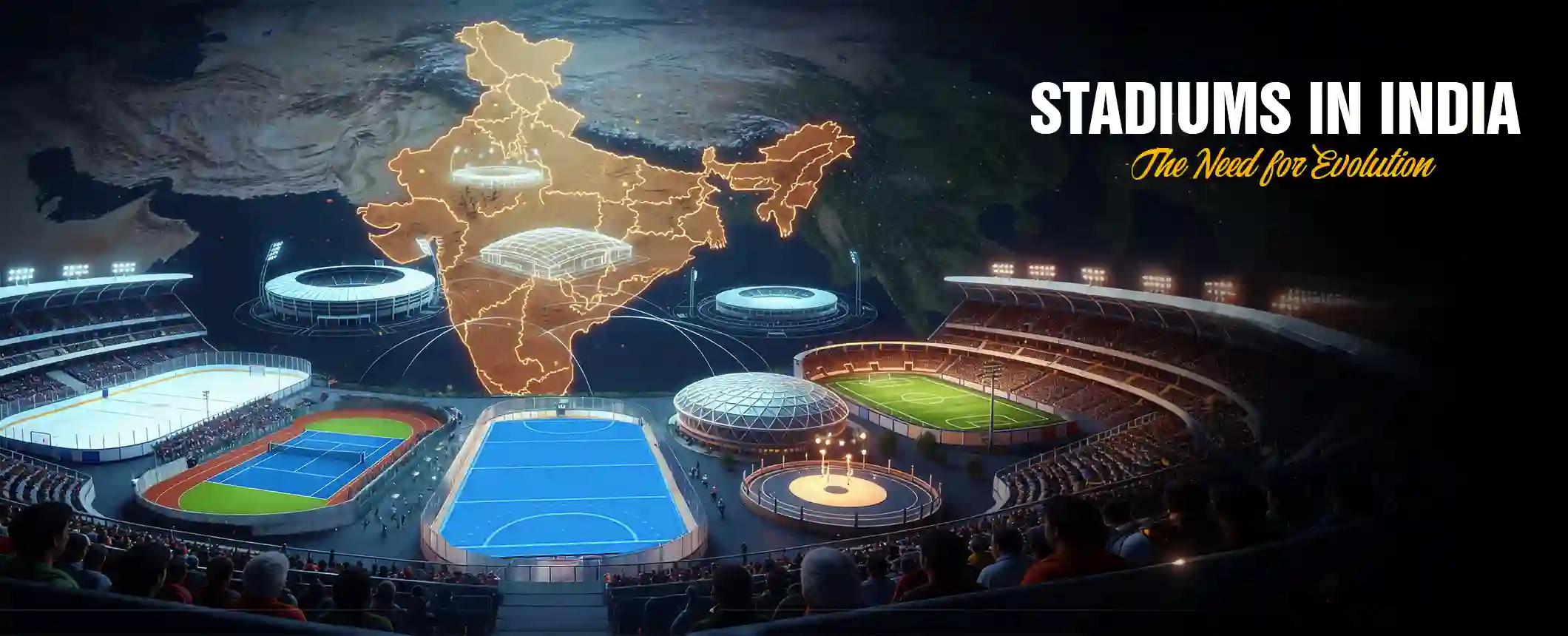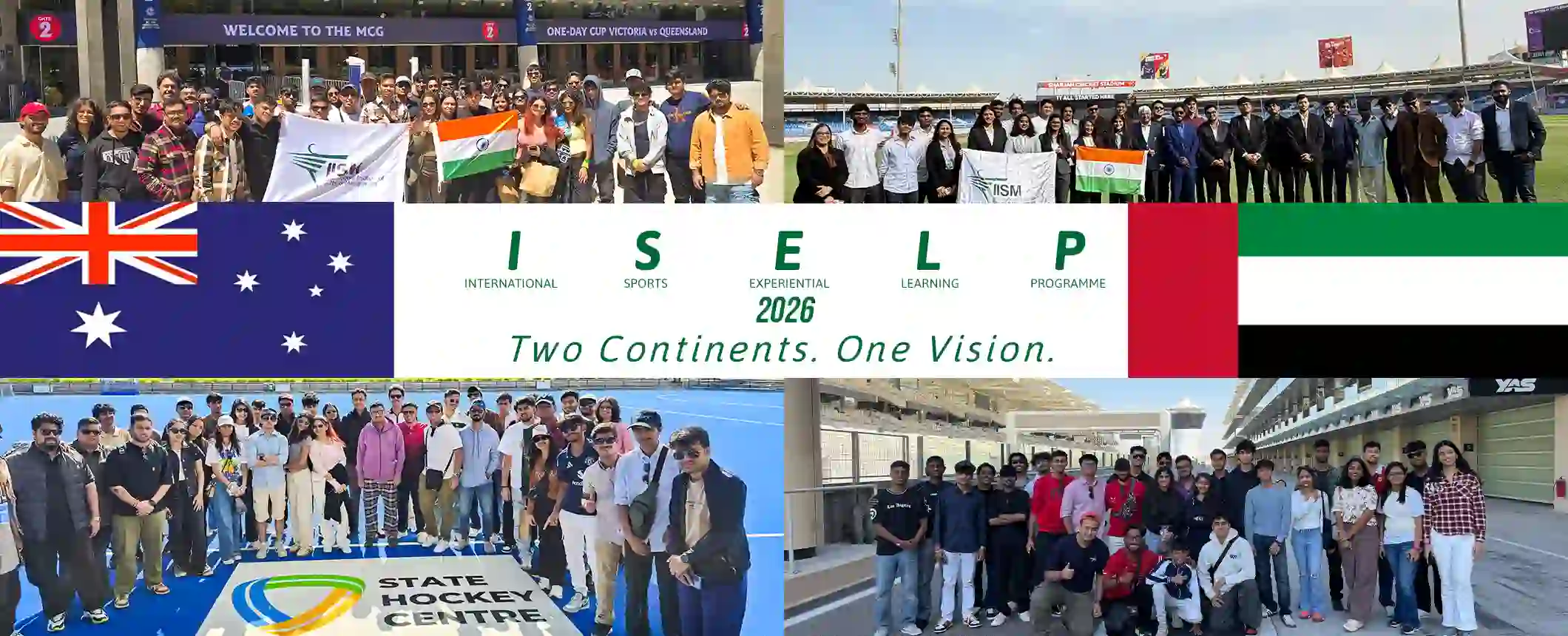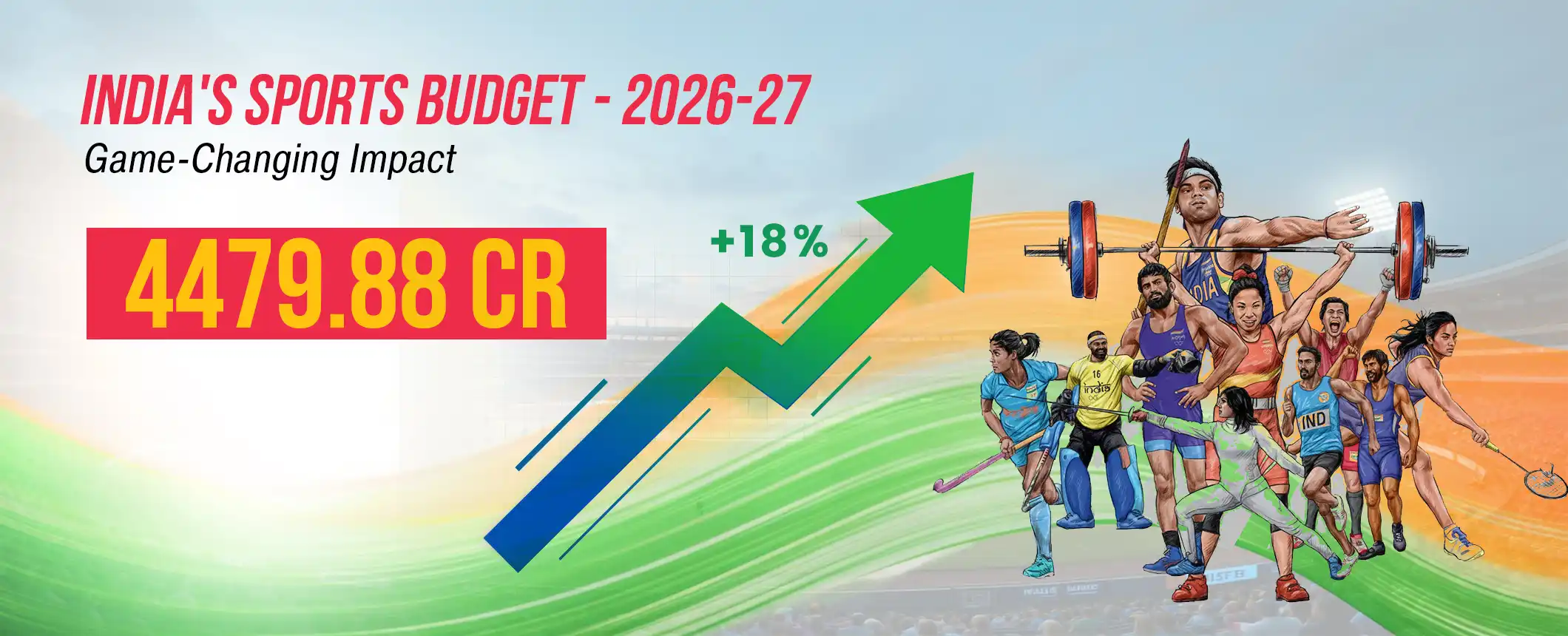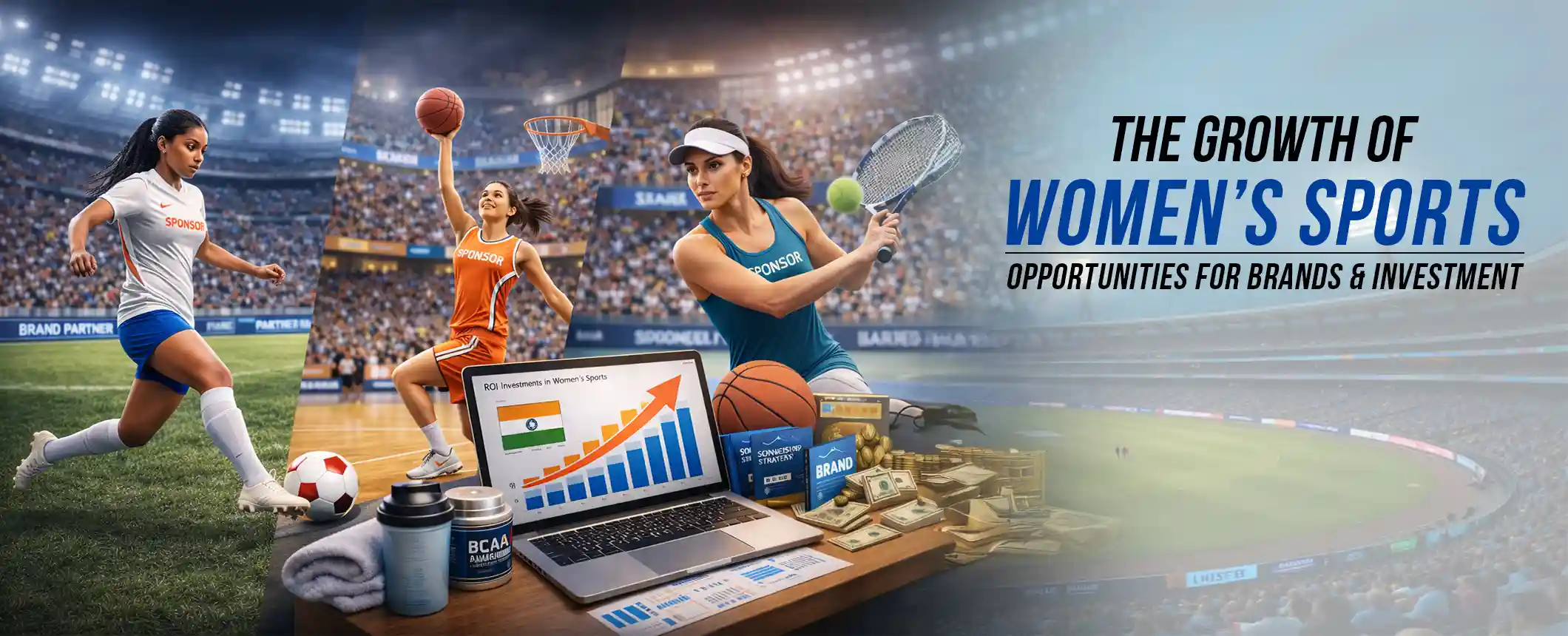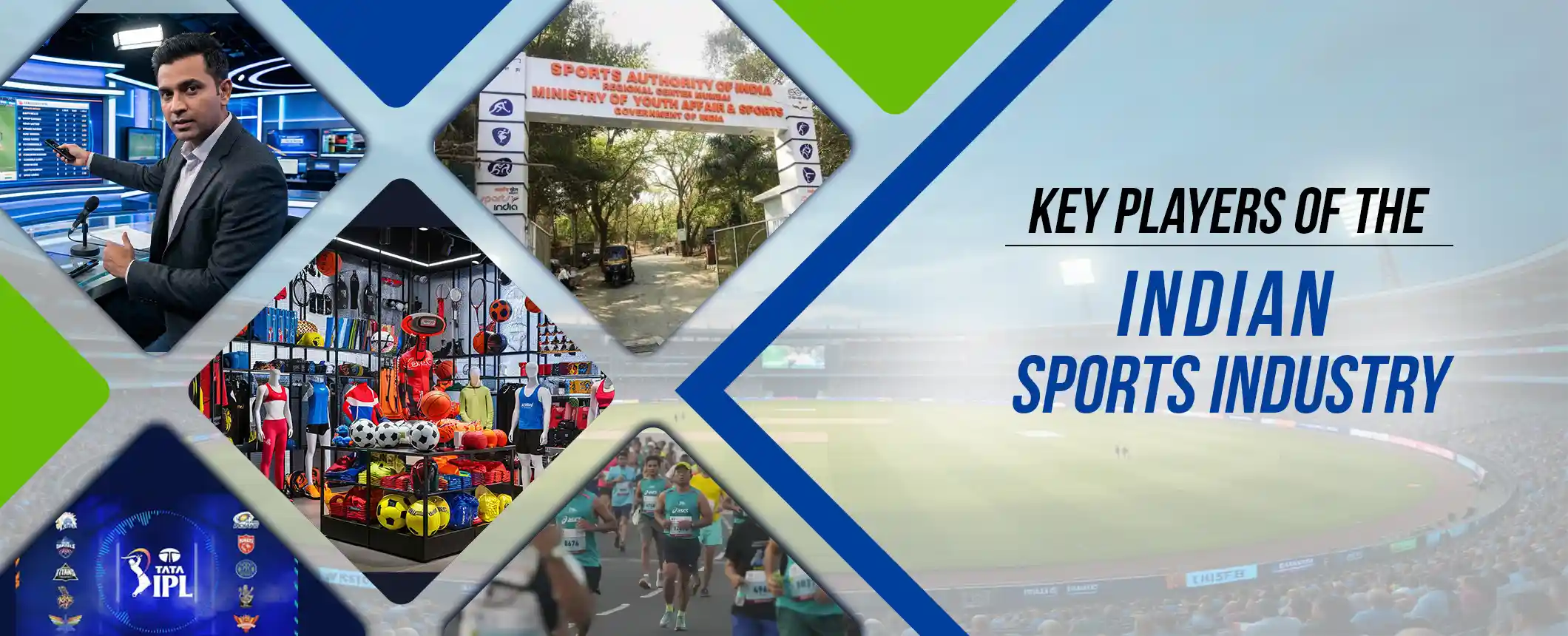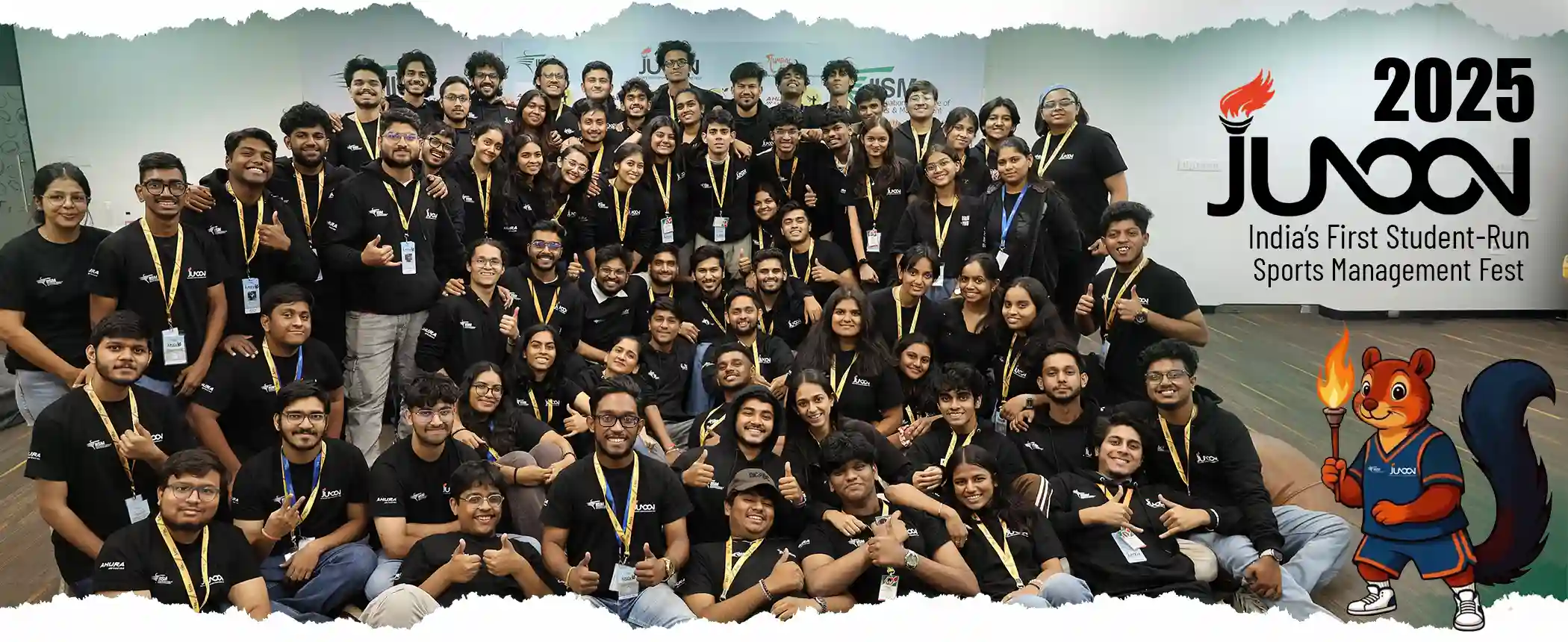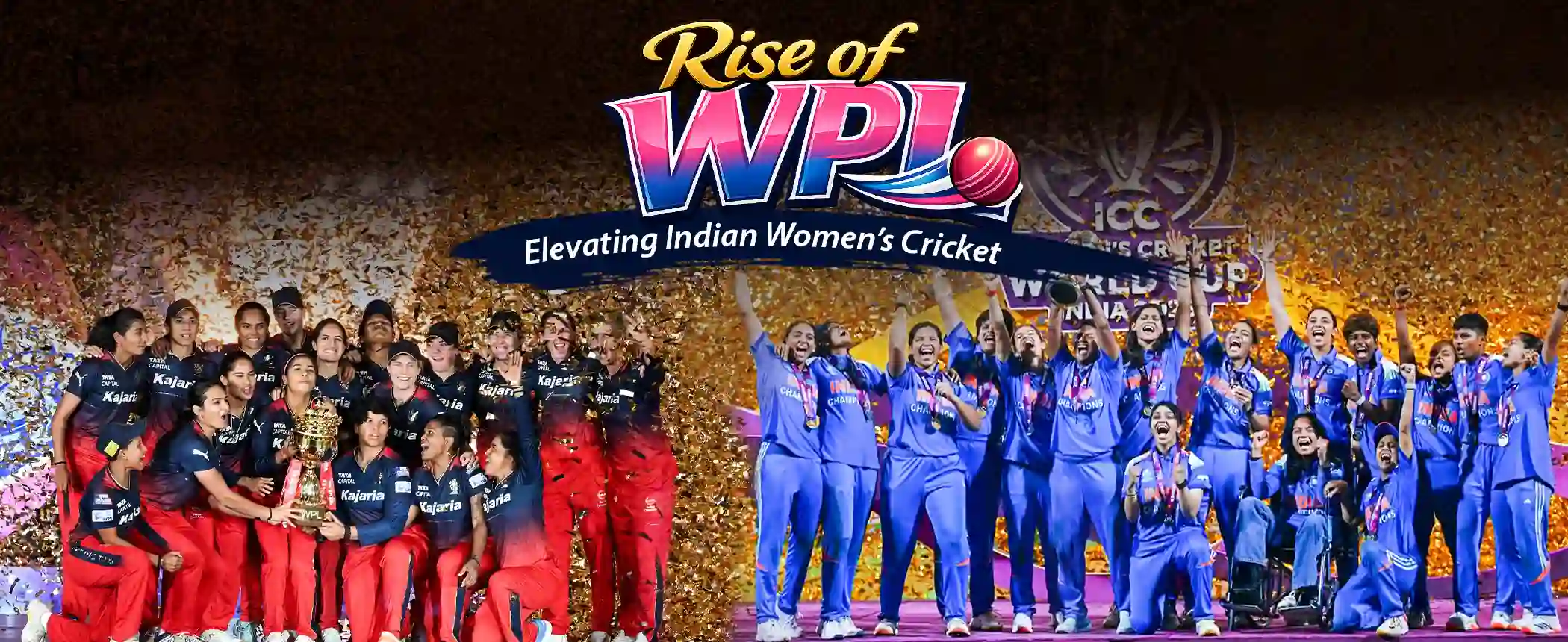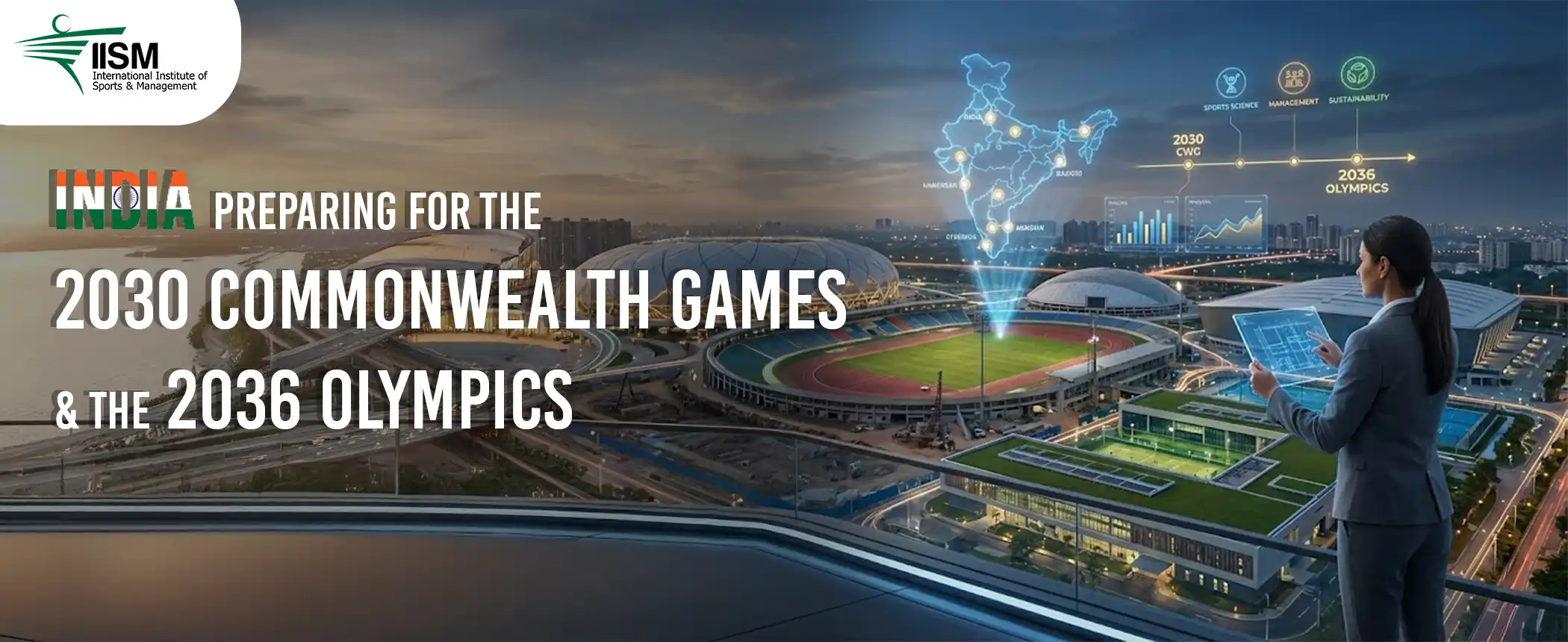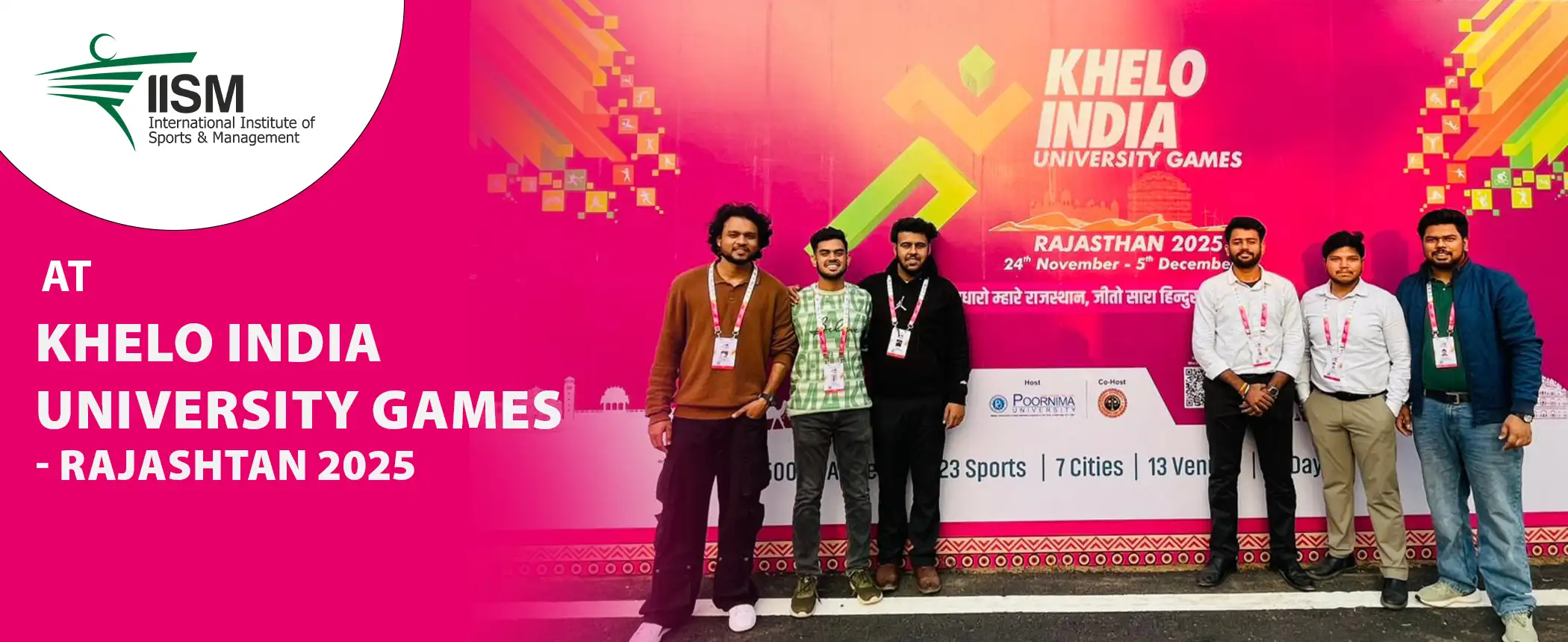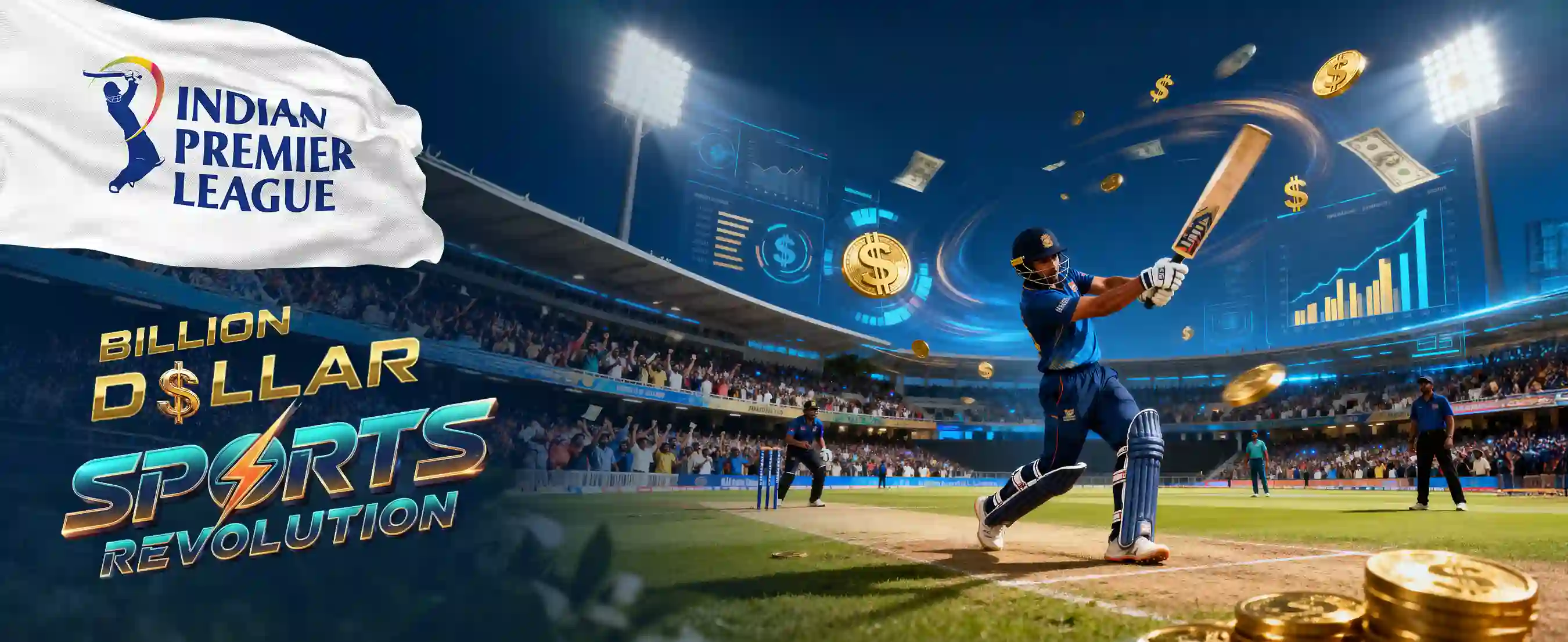Impact of Social Media in Sports: The New Era of Fan Engagement & Sports Business
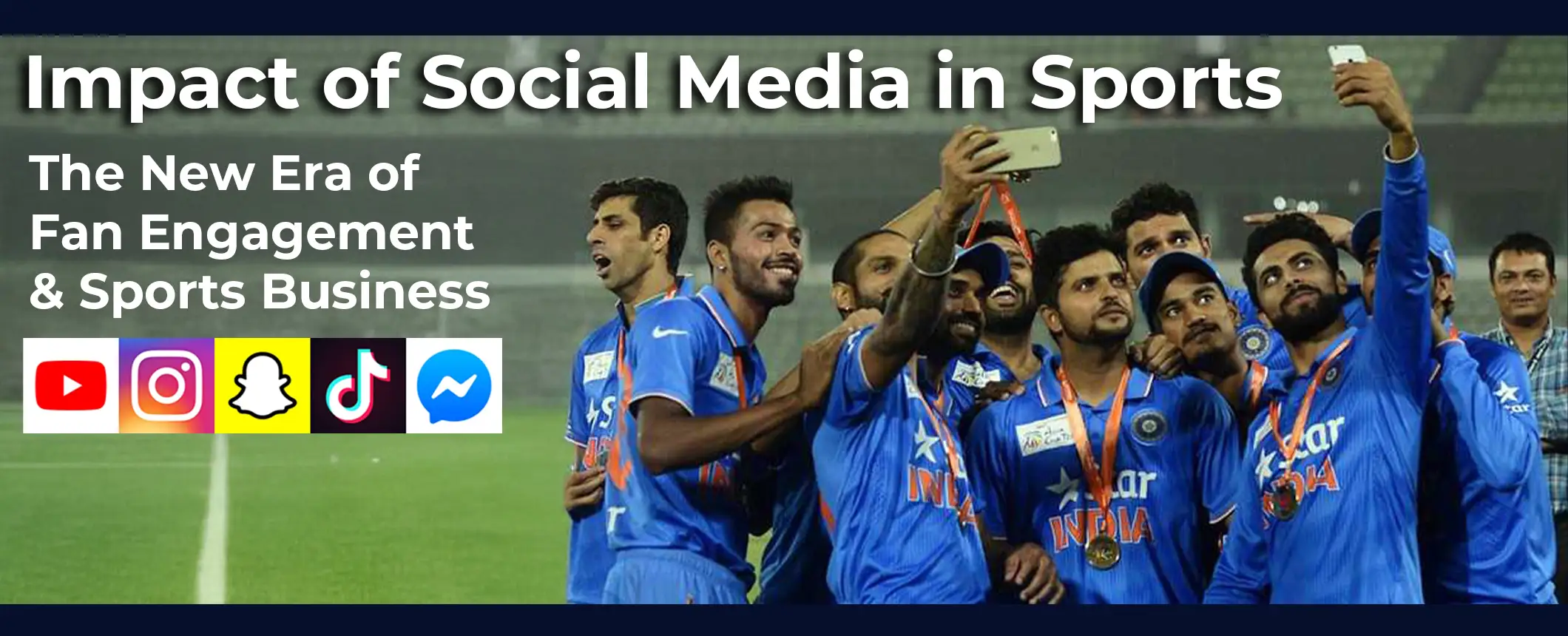
The impact of social media in sports has been nothing short of transformative. From fans live-tweeting thrilling cricket matches to athletes building personal brands on Instagram, digital media in sports has changed the way the industry functions. What was once limited to stadiums and TV screens has now expanded into smartphones, apps, and interactive platforms. Fans are no longer passive spectators; They are active participants in the sports ecosystem, shaping trends, driving conversations, and even influencing sponsorship value.
The Deloitte–Google “Think Sports” Report (2024) highlights that India’s sports market is projected to reach $130 billion by 2030, doubling from $52 billion in 2023. And one of the main reasons behind this growth is Digital media and social platforms. From broadcasting to brand endorsements, digital-first strategies are reshaping sports management, marketing, and fan engagement at an unprecedented scale.
This blog explores how social media is impacting sports—from market growth to new career opportunities in sports—and why mastering the digital side of sports is now essential for sports professionals and organizations alike.
How Social Media is Transforming Sports Engagement
Fan Engagement at Scale: Platforms like Instagram, YouTube, and Twitter allow teams and athletes to directly communicate with millions of fans in real time. Cristiano Ronaldo’s Instagram alone has more followers than several countries’ populations, while Virat Kohli commands an audience of 270M+ across platforms.
Shift from Live to Digital: The Deloitte–Google study shows 93% of Gen Z sports fans consume content digitally, with many spending 20% more time on highlights, memes, and behind-the-scenes clips than on live games.
Community-Building: Fans don’t just watch games—they participate. From hashtags like #WhistlePodu for CSK to meme-driven rivalries during IPL, social media has turned sports into an always-on cultural conversation.
Transparency & Accountability: Athletes today are under constant public scrutiny. A single tweet or Instagram story can make or break reputations, demanding careful digital brand management.
Digital Media in Sports: The Business Perspective
Social media isn’t just about fan engagement—it’s an economic powerhouse in the sports industry.
Advertising Shift: Digital advertising in sports is growing at 63% annually, while traditional TV ads have dropped by 10%. Brands now invest in Instagram reels, YouTube campaigns, and live-stream integrations rather than only stadium hoardings.
Sports Goods & Apparel: Valued at $8–9 billion, the sportswear market is growing 12–15% annually, boosted by social media campaigns from Nike, Adidas, and Decathlon India. Influencer-driven fitness trends have blurred the line between sports, fashion, and lifestyle.
Monetization Models: Teams and leagues earn through sponsored posts, digital fan memberships, NFTs, and fantasy sports tie-ups. The IPL’s partnership with JioCinema (Now Jio Hotstar) in 2024 recorded 350 billion streaming minutes, unlocking new sponsorship inventory.
Regional Reach: 77% of Indian fans prefer regional language content, pushing franchises to create localized social media campaigns to connect with tier-2 and tier-3 cities.
Careers in Sports & Social Media: New Job Roles
The boom in digital sports has created entirely new job opportunities in sports management and marketing. Some emerging roles include:
Sports Social Media Manager – Plans and executes campaigns, manages live updates, creates content strategies, and engages fans directly.
Digital Sponsorship Strategist – Aligns brands with athletes/teams through influencer marketing and digital campaigns, maximizing ROI on sponsorships.
Sports Data Analyst (Digital Engagement) – Uses AI and analytics to track engagement, sentiment, and fan behavior across platforms.
Content Creator & Producer – Develops short-form videos, memes, podcasts, and highlight reels to keep fans glued online.
Community Manager – Builds and moderates fan communities, creating a loyal base that can be monetized.
Sports management professionals who understand digital-first strategies are now more valuable than ever. Universities and sports management institutes are already integrating digital sports marketing modules into their curriculum.
Case Studies: Social Media in Sports
a) Indian Premier League (IPL)
In 2024, 620 million viewers streamed the IPL on JioHotstar, generating 350 billion minutes of content consumption. IPL teams like CSK and MI don’t just post scores, they create memes, behind-the-scenes videos, and interactive reels that trend globally. The IPL 2025 final attracted a record-breaking 169 million television viewers, whereas on Jio Hotstar, the viewers reached an astounding 578 million streams (57.8 crore)
b) Fantasy Sports & Fan Engagement
Fantasy leagues, powered by apps like Dream11and MPL thrive because of social media-driven conversations. Fans share teams, celebrate wins, and debate strategies online, creating a ripple effect. Although regulatory hurdles caused a 90% drop in investments in 2023, the industry is still projected to nearly double by 2029, showing how digital engagement is inseparable from fantasy sports.
c) Global Icons Driving Social Media Value
Athletes like Virat Kohli, Cristiano Ronaldo, and Serena Williams aren’t just sports stars; they are social media brands. Kohli earns more per Instagram post than many celebrities, while Ronaldo’s posts regularly generate multi-million-dollar exposure value for brands like Nike. These numbers highlight how personal digital presence can rival team sponsorships in impact.
The Double-Edged Sword: Challenges of Social Media in Sports
Pressure & Scrutiny: Athletes face trolling, mental health pressure, and brand risk due to online backlash.
Misinformation: Fake news, manipulated videos, and controversial leaks spread rapidly, often harming reputations.
Monetization Saturation: With every team and athlete pushing sponsored content, fans may face fatigue unless campaigns remain authentic.
The Road Ahead: Social Media & Sports Management
The sports ecosystem in India is moving toward digital-first strategies, and sports management professionals will be at the heart of this evolution. The Deloitte–Google report predicts:
- 10.5 million jobs will be created by 2030 in the Indian sports industry. Hence, a large share of these will be in digital media, fan engagement, and analytics.
- With 50% of fans discovering new sports online, the future of sports management lies in understanding how to leverage social media to grow lesser-known sports like kabaddi, hockey, and athletics.
Social media has become a strategic driver of business, culture, and careers in sports.
The impact of social media in sports has revolutionized how fans, athletes, and businesses interact. From $130 billion market growth projections to millions of jobs created, digital media in sports is playing not just a crucial role in engagement but also boosting the economics of the industry.
– For fans, it’s about closer connections.
– For athletes, it’s about building brands.
– For businesses, it’s about unlocking revenue.
And for sports management professionals, it’s about mastering the digital game.
As India moves toward becoming a global sports hub, the winning teams won’t just be on the field—they’ll also be the ones dominating feeds, hashtags, and screens.

